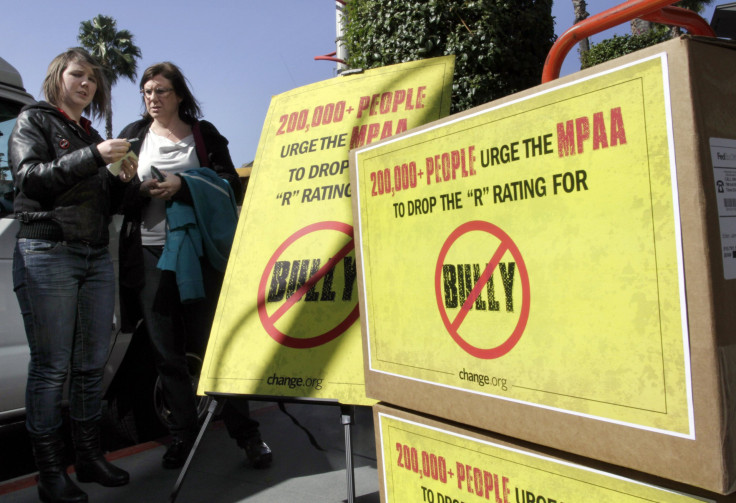Adolescent Bullying: Bullies Are Sexier, Like Themselves And Are Less Depressed, Study Finds

Adults trying to atone for their adolescent teenage bullying ways may get a kick out a recent study that suggested bullies are sexier and less depressed than their wimpy targets. The study, titled “Survival of the Fittest and the Sexiest,” published this month in the Journal of Interpersonal Violence, found that adolescent bullies reported higher levels of self-esteem, enjoy increased social status and have greater sex appeal than their peers who are less inclined to be dominant.
The study also found that bullies had lower rates of depression and social anxiety, which scientists have said makes sense from an evolutionary standpoint. But the study could complicate development of anti-bulling programs, many of which have been built around the belief that bullies are the troubled kids lashing out at their peers because of their personal shortcomings.
“The bullies come out on top,” Jennifer Wong, a lead researcher in the bullying study, told the Washington Post. Wong surveyed 135 Canadian high school students for the study, in which she concluded that bullying is biological. Children who have dominating tendencies and desire top social status will often victimize others to achieve their goals, Wong said.
“I’m absolutely not suggesting that we accept bullying as a natural thing,” she added. “We need to change the general school ethos so that bullies don’t gain any social status points from hurting others.”
Recent studies have shown that the rate of bullying among U.S. teens has dropped since the federal government began tracking it in 2005. Twenty-two percent of students between ages 12 and 18 had been victims of school bullies during the 2013 school year, compared to 28 percent in 2011, according to the U.S. Department of Education.
The latest study might be what former teen bullies believed about themselves all along. Combine that with research that showed “beautiful people” are perceived as healthier, more intelligent and persuasive, as well as likeable and trustworthy, and it’s no wonder why some of the people who are considered as less pretty and socially awkward could view life as unfair.
© Copyright IBTimes 2024. All rights reserved.






















